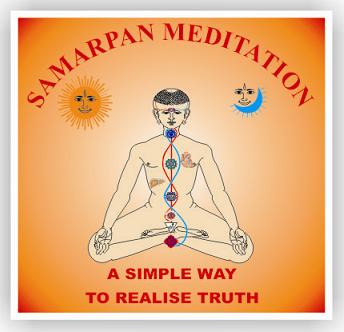Yoghurt provides smaller amounts of micronutrients, including potassium, zinc, phosphorous, magnesium, vitamin A, riboflavin, vitamin B5, and vitamin B12. It is also a recognized source of Calcium.
17. Cod Liver Oil:
The fish liver is high in Vitamin A, and you can get 4080 mcg of Vitamin A from one tbsp of cod liver oil, and it is the highest source of Vitamin A. In addition, fish oils help fight inflammation and protect your heart since they are rich sources of omega-3 fatty acids. They might even treat depression, as per recent research (7). One tbsp of cod liver oil contains 170% DV of Vitamin D.
Nutrients in one tbsp of cod liver oil:
- mcg: 4080.
- Daily value (DV) %: 150%
- Calories: 123.
18. Cantaloupe:
Cantaloupe is one of the retinol rich foods for the skin. It also helps protect your body against several diseases with the help of high amounts of Vitamin C. You can get 135 mcg of Vitamin A 15% DV in a half-cup of this summer melon. You can eat this fruit as it is or add it to your smoothie and reap all its benefits.
Nutrients in half cup of cantaloupe:
- mcg: 135.
- Daily value (DV) %: 15%
- Calories: 30.
19. Sweet Red Pepper:
Sweet red pepper has an element called capsanthin, an antioxidant with antihistamine and anti-inflammatory properties, and it is also a rich source of Vitamin B6, C, folate making them a nutritious addition to your diet. You can get 117 mcg of Vitamin A 13% of the DV from half a cup of raw sweet red bell pepper. You can add sweet red pepper into sandwiches with eggs or even take a dip with it.
Nutrients in half cup of raw sweet red bell pepper:
- mcg: 117.
- Daily value (DV) %: 13%
- Calories: 19.
20. Black Eyes Peas:
Beans are rich in fibre and are excellent sources of plant-based protein. For example, you can get 66 mcg of Vitamin A 7% DV from one cup of boiled black-eyed peas. They are also good sources of iron. As a result, you will be able to tackle high blood pressure and lower the risk of heart disease and type-2 diabetes with the consumption of beans, as per research (8).
RELATED BEST 10 ON AMAZON:
| IMAGE | TITLE | TRENDS | SEE MORE |
|---|
 | Organic Golden Berry Powder, 4 Ounces — Non-GMO, Made from Raw and Dried Goldenberries, Vegan Superfood, Rich in Vitamins ... | 168 | MORE VIEW |
|---|
 | Sponsored Ad - Nature’s Way Alive! Men’s Ultra Potency Complete Multivitamin, High Potency B-Vitamins, Energy Metabolism*,... | 80081.4 | MORE VIEW |
|---|
 | Sincerely Nuts - Raw Pumpkin Seeds In Shell (Pepitas) (1lb bags) | Antioxidant Rich Healthy Superfood Snack | Kosher, Vega... | 922.5 | MORE VIEW |
|---|
 | Life Extension Mix Without Copper High Potency Multivitamin Multimineral Daily Antioxidant-Rich Fruit & Vegetable Blend wi... | 76.8 | MORE VIEW |
|---|
 | JEB FOODS Egusi Ground Melon Seeds, 100% Natural, Nutritious, Rich in Proteins and Vitamins, 1 lb. | 1214.4 | MORE VIEW |
|---|
 | Sponsored Ad - Bronson Vitamin A 10,000 IU Premium Non-GMO Formula Supports Healthy Vision & Immune System and Healthy Gro... | 70373.1 | MORE VIEW |
|---|
 | Organic Golden Berries, 4 Pounds – Non-GMO, Whole Dried Berries, Unwseetened, Sulfite-Free, Kosher, Vegan, Bulk. Rich in V... | 1205.6 | MORE VIEW |
|---|
 | Orgain Organic Green Superfoods Powder, Berry - Antioxidants, 1 Billion Probiotics, Vegan, Dairy Free, Gluten Free, Koshe... | 102824 | MORE VIEW |
|---|
 | Premier Protein Shake 30g Protein 1g Sugar 24 Vitamins Minerals Nutrients to Support Immune Health, Chocolate, 11.5 Fl Oz... | 875012 | MORE VIEW |
|---|
 | Carnation Breakfast Essentials Powder Drink Mix, Rich Milk Chocolate, 22 Count Box of Packets (Packaging May Vary) | 138490 | MORE VIEW |
|---|
 | Weleda Skin Food Original Ultra-Rich Body Cream 2.5 Fluid Ounce, Plant Rich Hydrating Moisturizer with Pansy, Chamomile an... | 121537 | MORE VIEW |
|---|
 | Orgain Organic Green Superfoods Powder, Berry - Antioxidants, 1 Billion Probiotics, Vegan, Dairy Free, Gluten Free, Koshe... | 102824 | MORE VIEW |
|---|
 | Sponsored Ad - Nature Made Vitamin B12 1000 mcg, Dietary Supplement for Energy Metabolism Support, 90 Softgels, 90 Day Supply | 100650 | MORE VIEW |
|---|
 | Sponsored Ad - Nature’s Way Alive! Men’s Ultra Potency Complete Multivitamin, High Potency B-Vitamins, Energy Metabolism*,... | 80081.4 | MORE VIEW |
|---|
 | BOOST High Protein with Fiber Complete Nutritional Drink, Rich Chocolate, 8 fl oz Bottle, 24 Pack | 80078.6 | MORE VIEW |
|---|
 | Sponsored Ad - Bronson Vitamin A 10,000 IU Premium Non-GMO Formula Supports Healthy Vision & Immune System and Healthy Gro... | 70373.1 | MORE VIEW |
|---|
 | Garden of Life B12 Vitamin - mykind Organic Whole Food B-12 for Metabolism and Energy, Raspberry, 2oz Liquid | 57838.2 | MORE VIEW |
|---|
 | Garden of Life Vitamin C - Vitamin Code Raw Vitamin C - 120 Vegan Capsules, 500mg Whole Food Vitamin C with Bioflavonoids,... | 49507.2 | MORE VIEW |
|---|
Tips: "Amazon, Amazon Prime, the Amazon logo and Amazon Prime logo are trademarks of Amazon.com, Inc. or its affiliates". AS AN AMAZON ASSOCIATE, WE EARN AFFILIATE COMMISSIONS FROM QUALIFYING PURCHASES.





















